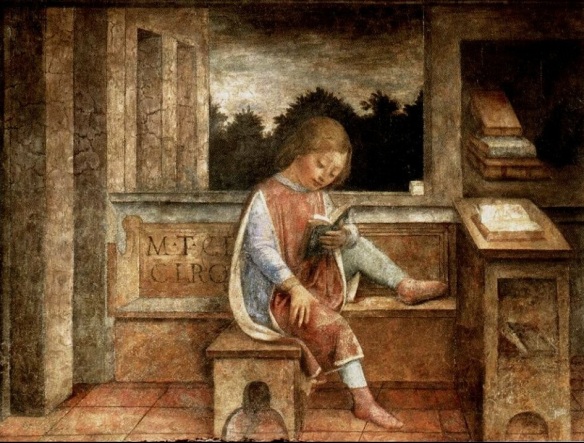Not to know what happened before was born is always to be a child.
Cicero
–
Telling observations of the human condition don’t become obsolete. Cicero in the first century B.C. forges the strength of Roman history into a weapon with which to defend the Republic against Sulla’s rage, Pompey’s vanity, Antony’s lust, and Caesar’s legions. “Life is not merely a matter of breathing,” said the great orator in one of his last philippics against tyranny. “The slave has no true life. All other nations are capable of enduring servitude – but our city is not.” Cicero’s eloquence failed in its assaults on the enemies of what was left of the Roman constitution – his severed head displayed in the Forum, his right hand nailed to the Speaker’s Platform, his tongue torn out and pierced with hairpins – but in the essays and speeches that compose his doomed enterprise, he formulates a prose style bequeathed to Montaigne and Edward Gibbon, gives voice to the ideals that nearly two thousand years later breathed life into the American Declaration of Independence.
For Cicero as for Arthur Schlesinger, history was not a nursery rhyme. Actions have consequences, one thing leads to the next, and sooner or later somebody’s head shows up on a scaffold or a coin. Children don’t see why they should be bothered to work out either the logic or the mechanics of the problem. Why take the trouble to remember what happened yesterday on channels 5 through 9 when tomorrow is available on channels 12 through 24? The national shortage of adult minds suits the purposes of a government that defines its task as a form of child-rearing and guarantees the profits of the consumer markets selling promises of instant relief from the pain of thought, loneliness, doubt, experience, envy, and old age. A country so favored by fortune is one in which no childhood gets left behind. A self-regarding electorate asks of its rulers what the rich ask of their servants: “Comfort us.” “Tell us what to do.” The wish to be cared for replaces the will to act, and in the event of bankruptcy or rain, travelers stranded on the roads from here to there can send an owl with a message to Harry Potter.
Lewis Lapham
Time Travel
Harper’s Magazine, May 2007
Painting by Vincenzo Foppa: The Young Cicero Reading (c. 1464)
